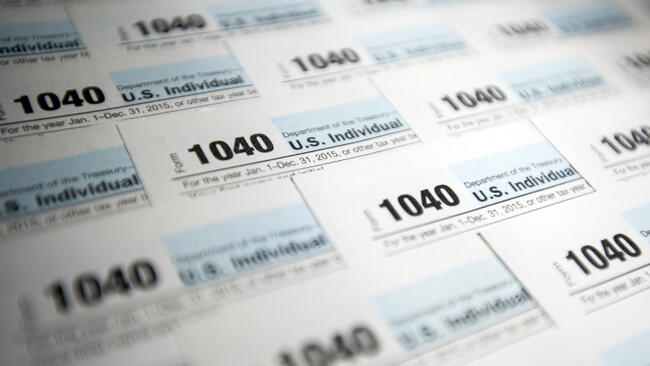How many credit cards do I need?
How many credit cards do I need?
How many credit cards do I need?

Key takeaways:
-
The average American has four credit cards.
-
Credit cards can help boost your credit utilization ratio.
-
Having too many credit cards could cause you to overspend and result in late or missed payments.
Swiping a credit card is one of the most popular methods of payment.
With credit card offers arriving at your doorstep, you may wonder how many credit cards you should have. There’s no hard-and-fast answer to this question, since the right quantity varies according to each individual’s situation.
We’ll take a closer look at the pros and cons of multiple credit cards and what you may want to consider before applying for a new card.
How many credit cards is too many or too few to have?
Credit card scoring models aren’t looking for a specific number of credit cards attached to your account. However, these models do check to see if you have a mixture of installment credit accounts and revolving credit accounts. In fact, your credit mix accounts for up to 10% of your overall credit score.
Installment loans require you to make set payments at set intervals, such as a car loan or home mortgage. Revolving credit accounts are ongoing accounts that you can use and pay down repeatedly over time, such as a credit card or home equity line of credit (HELOC). To have the right mix of accounts, it may be beneficial for you to have at least one credit card.
If you can afford to pay the balance in full and on time each month, having multiple cards may be a good option for you. If you're unable to pay them all off at the end of the billing cycle or even make the minimum payment, you should consider reducing how many credit cards you have. Keep in mind that your payment history accounts for up to 35% of your credit score. Just one late payment could impact your credit score.
Your number of credit cards can also impact your credit utilization ratio, which compares the full amount of credit you have available with the amount of credit you have already used. Having more than one credit card can increase the full amount of credit you have available, which can help your credit utilization rate low – unless you charge a lot to each of these cards. Experts agree that you should keep your overall and individual credit utilization ratio under 30% of your available credit.
How many credit cards does the average person have?
According to a recent study, the average American has four credit cards.1 This average doesn’t mean that four credit cards is the right number for you, though. You should also take into account your budget and the purpose of each card.
How many credit cards should I have?
When deciding whether to apply for a new credit card, you want to ask yourself why you need another credit card. Do you want to earn more rewards? Obtain lower interest rates? Receive introductory perks and rates? If you have a good reason and you’re already managing your current cards successfully, a new credit card may be right for you.
You also want to consider your budget and whether you can afford to cover multiple credit card payments per month. If you plan to spread your credit card charges across multiple cards, obtaining another credit card may be a good idea. However, you run the risk of overextending your credit and not being able to pay off your bills. Not making your minimum credit card payment every month or making late payments can significantly lower your credit score.
Downside to having multiple credit cards
If you have multiple credit cards, you'll need to track the due dates and balances for each card. This can become hectic depending on how many credit cards you have. Any missed payments could negatively impact your credit score. To overcome this challenge, you can contact your credit card companies to move the due dates closer together so they’re easier to track.
Credit cards also attach various fees to their cards, such as annual, cash advance and late payment fees. You should be especially careful of credit cards that offer introductory benefits because you may incur fees, such as annual fees, once the initial phase is over. If you’re not careful, these fees can quickly add up and become difficult to cover. Be sure to always read the fine print and fully understand all fees involved before signing up for any new credit card account.
Boosting your credit score is valuable to processes like securing a home mortgage – but it takes time. Try to avoid building your credit too fast. Applying for too many credit cards in a short period of time can negatively impact your credit score because every time you apply for one, the company runs a hard inquiry on your credit report. The credit reporting agencies track these inquiries, and too many can be a bad sign to lenders.
Instead of applying to multiple credit cards all at once, consider waiting at least six months between applications. You also want to avoid applying for a new credit card close to when you’re planning to make a large purchase, such as purchasing a car or home. This process requires a hard inquiry on your credit report. Waiting six months between any known hard inquiries can protect your credit score.
The impact multiple credit cards have on your credit score
There are several ways that having multiple credit cards can impact your credit score.
Credit utilization ratio
The number of credit cards you have directly impacts your credit utilization ratio, which accounts for up to 30% of your credit score. This can be good because it raises the overall available balance of all your credit accounts. For example, if you have three credit cards with a $1,000 balance on each, you have a total available credit balance of $3,000, rather than just $1,000 if you only had one card.
However, if you have a high balance that you owe on each card, it could lower your credit score. For instance, if you have $500 charged to each of the cards above, you have a 50% utilization ratio for each of these accounts, which is much higher than the recommended 30%. This, in turn, could negatively impact your credit score.
Payment history
Having multiple accounts you make on-time payments on every month can boost your credit score. In fact, your payment history accounts for as much as 35% of your overall credit score. If you’re going to have multiple credit cards, it’s important to be able to pay off your balances in full every month. Missing just one minimum payment can significantly lower your credit score, which could take months to repair.
Credit age
The overall age of your credit history accounts for up to 15% of your overall credit score. Credit card accounts are a great way to build long-term credit because they’re revolving accounts. These accounts continue to revolve as long as you pay down the balance and keep the account in good standing.
Does adding a credit card improve your credit score?
Adding a credit card can help improve your credit score because it can increase your credit utilization ratio and help you build a history of making on-time payments. However, you’ll only reap these benefits if you make on-time payments and don’t overspend.
How to manage multiple credit cards
Having multiple credit cards can be beneficial if you know how to properly manage them. Here are some ways to stay on top of your credit cards.
Set up automatic payments
One of the most important steps to avoid late credit card payments is to set up automatic payments. Once an automatic payment is set up, the minimum balance or the full balance, depending on how you set it up, will automatically be paid from your bank account.
After these automatic payments are set up, you’ll never have to worry about making a late payment again, as long as you have the funds in your bank to cover the bill. You can also contact your credit card company and request to have your credit card’s due date closer to your payday. This step can ensure that you have enough money in your account to cover these costs.
Consider a rewards card/cash back
If you’re going to have multiple credit cards, it’s helpful that they help you meet other goals. Consider applying to credit cards that offer special rewards, such as cash back or travel miles rewards.
Multiple store branded cards
Store-branded cards are another popular option and offer several benefits. First, these cards often offer special deals and discounts on the products you’re already purchasing. Secondly, because your purchases are limited to just one store, you’re less likely to spend too much or go over your limit. Holding multiple store-branded cards may be a good option if it fits your budget and you’re able to keep spending in line with your budget.
Is it better to cancel unused credit cards or keep them?
If you’re considering closing a credit card account, you might want to think again. If you’ve held a credit card account for a long time, don’t be too quick to close it. Even if you rarely use the card, it can help establish a longer credit history for you. Closing this card wipes out the length of credit history that comes with it.
If you have a credit card that you can no longer manage or that has extremely high interest rates or fees, it may make more sense to close the account than to have it impacting your credit score or costing you too much money.
If your current credit card doesn’t have the best rates, you may consider switching to another card type with the same credit card company. In many cases, the age of your credit card account transfers to the next card, which means it won’t impact your credit history. Before choosing this option, be sure to ask the credit card company if your card history transfers to the new account.
Our take
Unless you have another type of revolving credit account, it may be beneficial to have at least one credit card. If you’re mindful of spending within your budget, a credit card can help boost your credit score and help you make some purchases that require credit cards, such as rental cars.
The most important factors to consider:
-
You’re able to pay multiple credit card balances each month
-
You understand the terms of each credit card
-
There’s a clear reason for taking on a credit card
Get financially happy
Put your money to work for life and play
1 CNBC Select, Alexandria White, “Americans have an average of 4 credit cards—is that too many?,” May 2022
RO3497670-04-24
The content contained in this blog post is intended for general informational purposes only and is not meant to constitute legal, tax, accounting or investment advice. You should consult a qualified legal or tax professional regarding your specific situation. No part of this blog, nor the links contained therein is a solicitation or offer to sell securities. Compensation for freelance contributions not to exceed $1,250. Third-party data is obtained from sources believed to be reliable; however, Empower cannot guarantee the accuracy, timeliness, completeness or fitness of this data for any particular purpose. Third-party links are provided solely as a convenience and do not imply an affiliation, endorsement or approval by Empower of the contents on such third-party websites. This article is based on current events, research, and developments at the time of publication, which may change over time.
Certain sections of this blog may contain forward-looking statements that are based on our reasonable expectations, estimates, projections and assumptions. Past performance is not a guarantee of future return, nor is it indicative of future performance. Investing involves risk. The value of your investment will fluctuate and you may lose money.
Certified Financial Planner Board of Standards Inc. (CFP Board) owns the certification marks CFP®, CERTIFIED FINANCIAL PLANNER™, CFP® (with plaque design), and CFP® (with flame design) in the U.S., which it authorizes use of by individuals who successfully complete CFP Board's initial and ongoing certification requirements.





